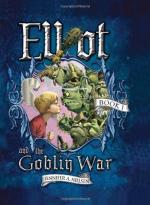“Would Nellie no’ ken, think ye, what it was that Geordie had against Black Jock that kept him sae quiet?” enquired Peter.
“I couldna’ say,” answered Andrew, “but some day when I get the chance I’ll maybe ask her, an’ if it is as I think, then there’ll be rows.”
“Let me ken, Andrew,” broke in Matthew. “Let me ken if ever ye discover onything; an’ ye can count on me sharin’ the penalties o’ hell alang wi’ ye for the murder o’ the big black brute.”
“I heard,” said Peter, “that he was boozin’ wi’ Mag Robertson and Sanny. But we’ll no’ be long in kennin’, for ill-doin’ canna hide.”
* * * * *
After three frantic days of fighting against calamity, during which Andrew never left the fight except for that brief journey to tell Nellie the news, at last they came upon the crushed mass of bloody pulp and rags, smashed together so that the one could not be told from the other—father and son, a heap of broken bones and flesh and blood.... And no pen can describe accurately the scene.
The light had gone out from one woman’s heart, the hope had been crushed from her life. The rainbow which had promised so much vanished. The lust and urge had gone out of eager life. Never again would the world seem fair and beautiful. Instead, all the weary fight and desperate battle with poverty and privation over again; the dull misery and the drab gray existence, and always the pain—the heavy, dragging pain of a broken life. With a woman’s “Oh! my God!” the world for one heart stood still, and the blind fate of things triumphed, crushing a woman’s soul in the process.
CHAPTER XI
THE STRIKE
A week had passed, and Geordie Sinclair and his boy, or at least all that could be gathered up of them, had been laid to rest.
Nellie was very ill, and was now in bed. The reaction had been too much for her. But, as Jenny Maitland had said: “She’s never cried yet, an’ it would hae been better gin she had. She jist looked at ye wi’ her big black e’en sae vexed-like and faraway lookin’, an’ never spoke hardly. When they carried out the coffins, she sprang up gin she wad follow them, but was putten back to bed again. It was heart-vexin’ to look at her.”
Robert suffered, too. The sympathy of everyone went out to him. At night when he went to bed the whole scene was reenacted before him in all its horror. Those tense moments of tragedy had so powerfully impressed his boyish mind that he could never forget them.
At the end of the week Andrew Marshall visited them to talk over matters. A collection had been made at the pay-office by the men employed at the pit, and a beautiful wreath purchased and placed upon the grave. A substantial balance had been handed over to Mrs. Sinclair, and this defrayed the expenses of the funeral. After Andrew had spoken of various things, he broke on to the object of his errand that night.




